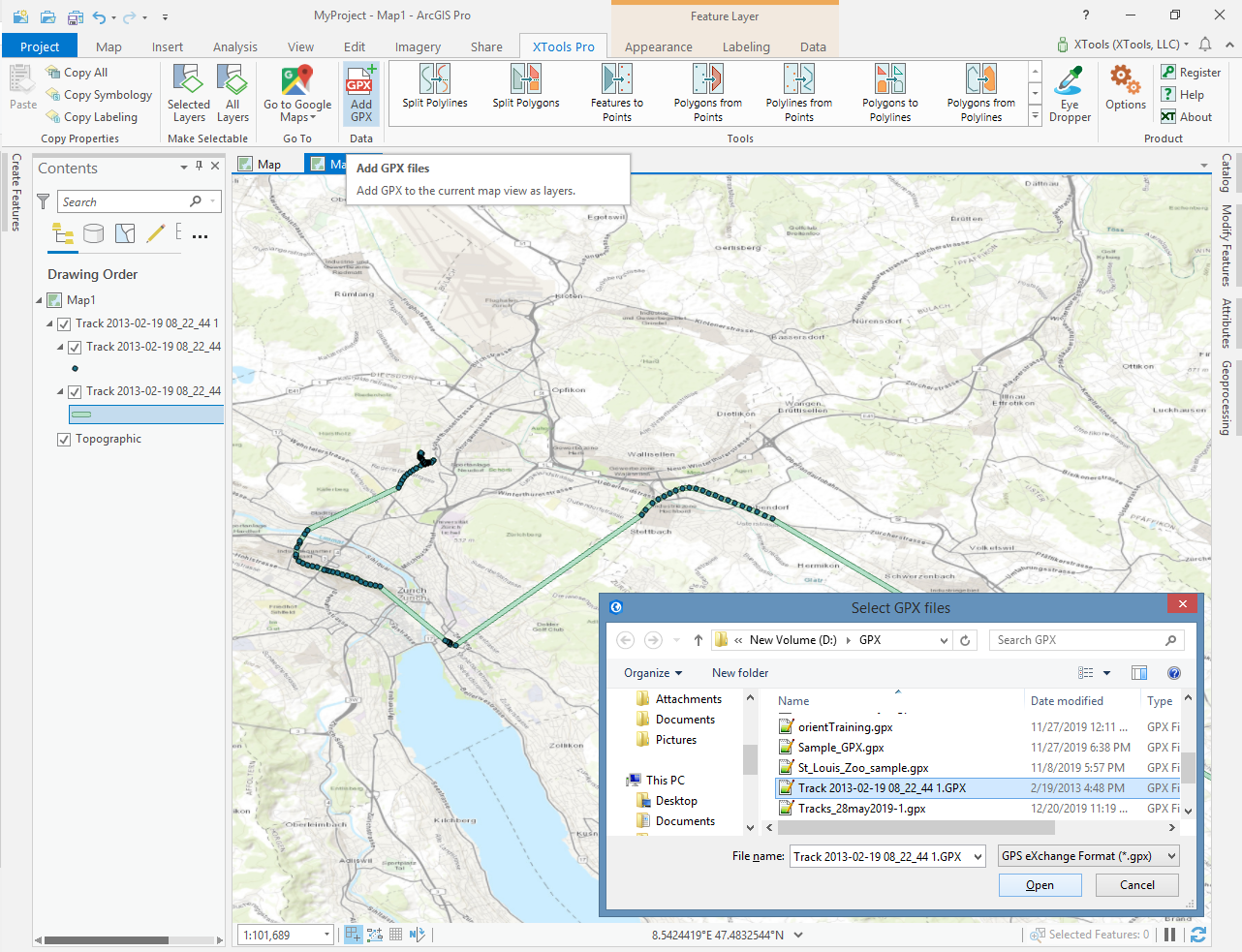

- GPX VIEWER CLASSES HOW TO
- GPX VIEWER CLASSES SERIAL
- GPX VIEWER CLASSES PRO
- GPX VIEWER CLASSES SERIES
Activity (4) Records sensor data and events from active sessions.
GPX VIEWER CLASSES SERIAL
It describes the type of file (Activity, Workout, Course) and the producer of the file (manufacturer, device, serial number…). To create or manipulate Fit files, you can be focused on the messages and the other components may be handled by your SDK.įile Id message is the first message in the file. This information is embedded in messages which are serialized and compiled to create a FIT file.įit file is a binary file composed of: File Header, Message Definitions, Messages, and a 2-byte CRC FITįIT (Flexible and Interoperable data Transfer) protocol is a format designed specifically for the storing and sharing of data that originates from sport, fitness and health devices.įit format allows you to store information such as sensor data, course points, workout instructions, device settings, etc. The TCX also includes a feature for non map based devices with a “turn guidance” which allows users to get direction arrows displayed on their gear. This means that the activity is not a GPS point track, but the GPS track is a component of the activity so those GPSpoints contain their heart rates, etc… at the given time they were recorded. The TCX format is also more “sport activity-centric”. There are two versions of this format with their own XML schemas hosted by garmin, here are some of them: The main goal of this format is to extend the capabilities of the GPX format (for its GPS data storing abilities) by adding more data such as heart rate and cadence. TCX for Training Center XML is a data container written in XML. That’s means that every sport session done without GPS can not use this file format (ex: a pilates session with my Apple watch who saved my HR) TCX GPX format does not let you push information without any location data. To represent a single GPS track where GPS reception was lost, or the GPS receiver was turned off, start a new Track Segment for each continuous span of track data.
GPX VIEWER CLASSES SERIES
rteType: represents route - an ordered list of waypoints representing a series of turning points leading to a destination.Wpt: represents a waypoint, point of interest, or named feature on a map.trk: represents an ordered list of points describing a path.The file format is XML and it’s “readable” so users can easily read and modify it. GPX ( GPS eXchange Format) is a data format for exchanging GPS data between programs, and for sharing GPS data with other users like itinerary (hiking, cycling… ). We will now take a deeper look into each file extension’s functionalities GPX Con (-): You must implement the FIT protocol to read and write files You have to join the Fit consortium to create fit file for your brand.
GPX VIEWER CLASSES PRO

Good evolution of GPX more focused on sport (in-door activity, sport) As it is an xml based file it is possible to edit it with a simple text editor. Pro (+): No apparent licensing restrictions (XML schemas freely available).Who use it: Garmin training center, Strava, Polar ….Usage : GPS, in-door activity (Heart rate, etc.).Con (-) : File size, restriction on location point and extensions information No data about the sport practised.Pro (+) : Standard and open format, still the reference today.Who use it : Applications of navigation (routes, waypoints…), Strava, Garmin, Everybody….We will describe the capabilities and pros and cons of each solution. The different files will generally provide context data : the name of the activity, the startime, the location data (the GPS track) with more or less data : pace, temperature, heart rate… Primarily these formats were designed for the outdoor GPS watches but slightly the market evolved to the whole sport practice including indoor training, so the newest formats have a better support of all practices. All sport applications allow you to export or import by these standards your sport activities. fit, all these file extensions are used to transfer by file a sport activity (or a track, a workout).
GPX VIEWER CLASSES HOW TO
GPX, TCX, FIT: How to choose the best file extension for sport activity transfer ?


 0 kommentar(er)
0 kommentar(er)
